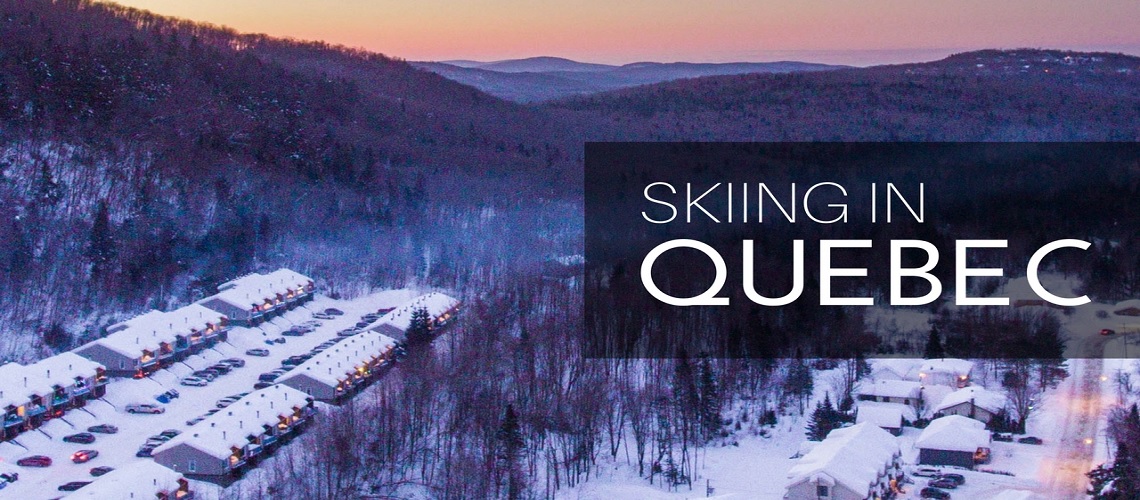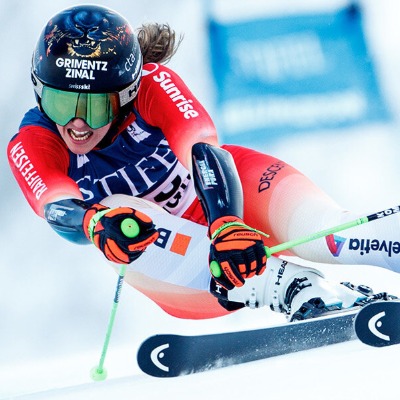Quebec Ski Areas Report A Popular Season For Skiers But Financial Results Greatly Impacted By The Pandemic

The COVID-19 pandemic will have forced ski resort operators to constantly adapt to the evolution of health measures last winter and which, against all expectations, continue for the season in Classes. The 2020-2021 financial results unveiled as part of the filing of the Economic and Financial Study of Quebec Ski Resorts are unequivocal: the effects of the pandemic have greatly impacted the total sales of the ski industry ( - 22.5%), although the resorts had the opportunity to remain open during this extraordinary season.
The sale of tickets and seasonal subscriptions also suffered the repercussions of COVID-19, a result directly linked to the management of reception capacities restricted to 50% throughout the province. However, skiing remained very popular, as shown by the ridership data in this study. “We have certainly seen an increase in ski days, on the other hand all the other financial indicators are down. This is the first study by a tourism sector to report the effects of the pandemic on winter tourism in Quebec, ”said Michel Archambault, director of this study and professor emeritus in tourism at ESG UQAM.
In addition to the decrease in ticket and season ticket sales, the main highlights are as follows:
- The proportion of visitors from outside Quebec fell by 46.6%
- 34 stations refused visitors on average 16 times
- Subscriptions represent 61% of total traffic
- January 2021 was the mildest January in 100 years
- 45% of services (bar and restaurant, ski school, etc.) were closed or subject to capacity limits
The figures speak for themselves: revenues other than ticket sales, ie equipment rental, catering and ski school are down sharply (-52%). The complete and partial closure of snow sports schools (- $ 14 million) during the season, as well as the partial closures of restaurants and chalets inevitably caused a drop in revenues related to the operation of these services. “This drop in income, in addition to the 5 million dollars spent on the implementation of various measures to adapt to the health context, whether we think of signage, labor, personal protective equipment or even the setting up of online sales systems, etc., necessarily affected the results of the last season, ”underlines Mr. Yves Juneau, President and CEO of the Association des stations de ski du Québec.
These types of closures or restrictions have certainly caused many headaches for operators, in particular because of the loss of income, however, the establishment of subsidies and government financial assistance, in particular the Emergency Wage Subsidy of the Canada (SSUC) has allowed ski resorts to stay afloat. The 2020-2021 season therefore ended with better than expected results, considering that without these government programs , many stations would have had to report a significant deficit. Declining revenues have also slowed the deployment of new infrastructure projects. Before the pandemic, the industry was on a roll-out of investments as shown by the results of the 2018-2019 and 2019-2020 seasons with respectively $ 78 million and $ 55.7 million in investments. Dollars invested in upgrades last season fell to $ 22 million.
The pandemic will therefore have weighed down the financial health of ski resorts. Fortunately, these can count on a clientele that has not lost a single touch of passion, as evidenced by the number of ski days for the 2020-2021 season: 6.1 million visits, up from 4 , 5%, thus confirming the popularity of outdoor activities in Quebec and more specifically the interest in downhill skiing and snowboarding.
Beyond the numbers, the chairman of the board of directors of the ASSQ and president of Mont Sutton, Mr. Jean-Michel Ryan, says he is proud to have managed to get through the last season in an operating context. difficult, but above all happy to have allowed the people of Quebec to set off on the ski slopes throughout the winter and to have provided a dose of happiness to board sports enthusiasts. "We are grateful to the government of Quebec and, in particular to ministers Caroline Proulx and Isabelle Charest, who ensured that ski resorts were able to operate in a safe environment for customers and staff, with robust health measures and well respected, ”said Mr. Ryan.














